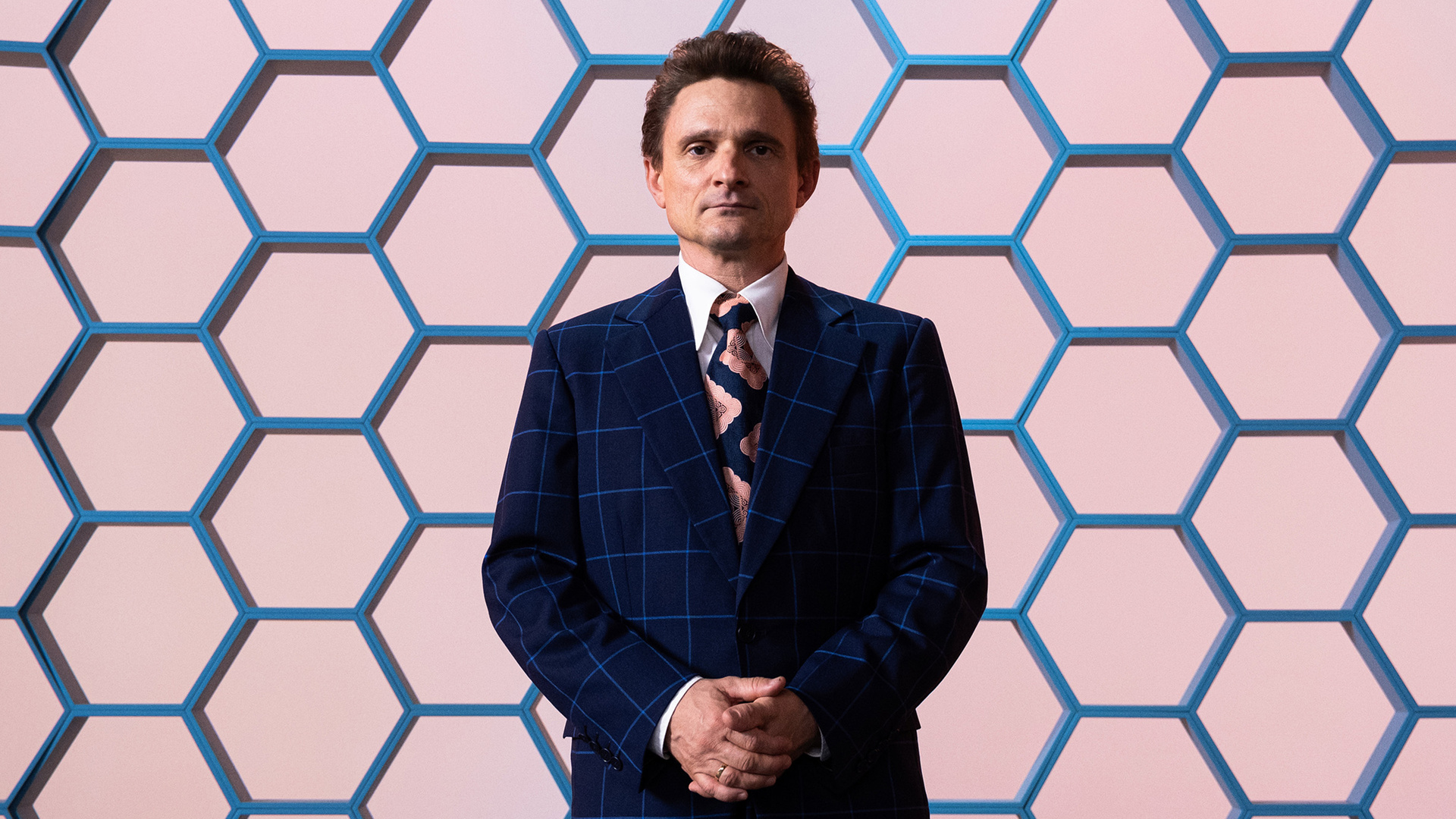
Costume Design Between Showbiz and History
Interview with costume designers Christian Röhrs and Juliane Maier on the ZDF film “Rosenthal”.
On April 2, 2025, Hans Rosenthal would have turned 100. To mark the occasion, ZDF is dedicating a special TV Movie of the Week to the beloved entertainer of “Dalli Dalli” fame – revealing a lesser-known side of him as a Holocaust survivor, caught between the glitter of television and the weight of personal history. Directed by Oliver Haffner and starring Florian Lukas in the title role, the film is accompanied by a documentary. Costume designers Christian Röhrs and Juliane Maier, who are also nominated for the German Film Award for their work on Cranko, share insights into their creative process on Rosenthal.
How did you approach the research and design of the costumes for Rosenthal?
Christian Röhrs: We immersed ourselves in the fashion history of Germany from the 1940s to the 1970s. We studied photo books and magazines and read Hans Rosenthal’s autobiography Two Lives in Germany. At the same time, we exchanged ideas and material with director Oliver Haffner. Old episodes of Dalli Dalli as well as news reports and documentaries from 1978 served as key sources of inspiration.
How do you divide the work and what does your typical collaboration process look like?
Juliane Maier: We begin with an in-depth exchange of ideas based on the script, develop mood boards together, and discuss our vision with the director. Then we each start searching for costumes independently. Fittings and final costume planning are done together. We share the same high standards but bring different perspectives – a combination that consistently enriches our work.
Hans Rosenthal’s iconic look – were there specific garments or style elements that defined him?
Juliane Maier: A tailored suit, cuffed shirt, and a bold tie – that was his signature style. Hans Rosenthal had a strong sense of fashion, valued a well-groomed appearance, and received professional style advice.
Due to budget constraints, we could only have a few pieces custom-made. We focused on two tailored suits for our lead actor, Florian Lukas, to truly convey Rosenthal’s elegance.
What role do the costumes play in the development of the character? Are there differences between Rosenthal’s public and private appearance?
Christian Röhrs: Absolutely. These differences are very distinct in the film. Over time, Hans Rosenthal, encouraged by his wife Traudl, makes the decision to open up to the public about his past as a Jewish orphan and Holocaust survivor.
In the childhood scenes, we show him in plain, modest clothing. As a quizmaster, he’s impeccably dressed. In private, we portray him as understated and casual.
What role did the Babelsberg costume archive play in your work?
Christian Röhrs: The archive was a central resource for us. We found a wide selection of original pieces there and transported an entire truckload of costumes to Munich, where we set up a temporary costume department in the production office.
How does working with the archive influence your creative process? When do you use it most?
Juliane Maier: Mainly during the preparation phase. Browsing the endless aisles is always inspiring – it’s a true treasure trove. The variety of garments is incredibly valuable, especially for historical productions.
Were there emotional moments during your work on Rosenthal?
Christian Röhrs: Many. Reading the script and working on the 1940s scenes was often emotionally intense. One especially moving moment was during the second fitting when Florian Lukas tried on the custom-tailored suit – and suddenly embodied Rosenthal’s gestures perfectly. It was a magical moment…
Juliane Maier: …which continued on set in the recreated Dalli Dalli studio.
If one costume from the film were displayed in a museum 50 years from now, which would it be – and what story would it tell?
Juliane Maier: The black three-piece suit – Rosenthal wore it intentionally for the 75th episode of Dalli Dalli, aired on November 9, 1978. It was the first time Germany publicly commemorated the Reichspogromnacht. For Hans Rosenthal, as a Jewish entertainer, that evening was an emotional ordeal.
Our film tells the story behind that moment.